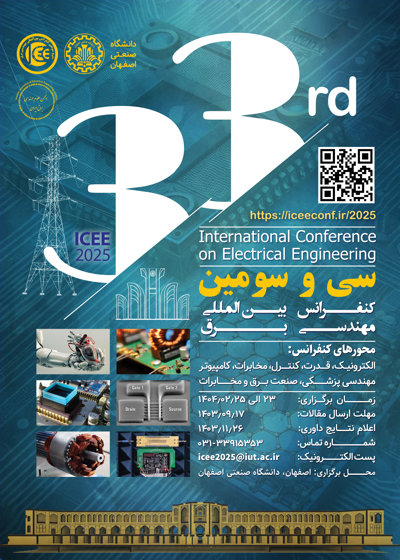0% Complete

نویسندگان :
کلمات کلیدی :
چکیده :
لیست مقالات بایگانی شده
Zahra Doorbash - Ali Jamshidi
Vida Esmaeili - Mahmood Mohassel Feghhi
Khashayar Dehghan - Omid Shoaei - Shahin Jafarabadi Ashtiani
َAli Abooee - Saeed Amiri - Mohammad Hadi Rezaei
Reyhane Zarei - Mousa Shamsi - Amin Eidi
سجاد قابلی ثانی - رحیم عجبی فرشباف - میثم صادقی - محمد خدایاری
فهیمه رنجبر - محمدعلی سبقتی
Moslem Geravandi - Hassan Moradi CheshmehBeigi
Omid Abbassi Aghda - Mohammad Javad Omidi - Hamid Saeedi-sourck
Zahra Nouri - Nima Norouzi





